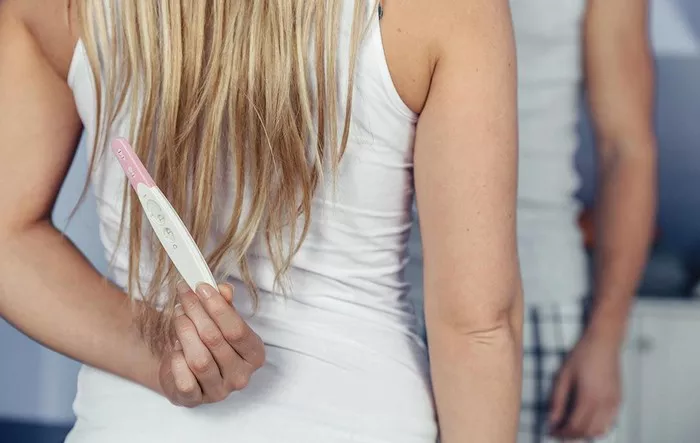Fertility is a topic of immense importance for many women and couples worldwide. The journey to conception can be both exhilarating and challenging, often leading individuals to explore various lifestyle factors that may influence their chances of successfully conceiving. Among these factors, caffeine consumption has emerged as a subject of interest due to its prevalence in the diet and its potential impact on fertility. In this article, we will delve into the relationship between caffeine intake and female fertility, drawing upon scientific research, expert opinions, and practical recommendations to empower individuals with the knowledge they need to make informed choices.
Overview of Fertility and Caffeine
Before diving into the specifics of caffeine’s effects on fertility, it’s essential to understand the basics of fertility and the common sources of caffeine in the diet. Fertility refers to the ability to conceive and carry a pregnancy to term successfully. While factors influencing fertility can vary widely from person to person, lifestyle habits such as diet and exercise play a significant role.
Caffeine, a natural stimulant found in various foods and beverages, is a staple in many people’s daily routines. Common sources of caffeine include coffee, tea, soft drinks, energy drinks, and chocolate. Its widespread availability and stimulatory effects make it a popular choice for boosting energy and improving alertness. However, its potential impact on fertility has sparked interest among researchers and healthcare professionals.
Scientific Research
Numerous studies have investigated the relationship between caffeine intake and infertility, with findings that are both intriguing and sometimes contradictory. Systematic reviews and clinical studies have provided valuable insights into this complex relationship.
One systematic review, published in the American Journal of Obstetrics and Gynecology, analyzed data from multiple studies and found a potential link between high caffeine intake and delayed conception. The review suggested that women who consumed high levels of caffeine may take longer to conceive compared to those with lower caffeine consumption.
Similarly, a clinical study conducted at a fertility clinic revealed that women who consumed more than 300 mg of caffeine per day—roughly equivalent to two to three cups of coffee—were more likely to experience infertility issues than those with lower caffeine intake. The study suggested that moderate caffeine consumption may be advisable for women trying to conceive.
However, it’s essential to note that not all studies have found a significant connection between caffeine intake and infertility. Some research has yielded inconclusive results, highlighting the need for further investigation into this complex relationship.
Expert Opinions
Fertility specialists and nutritionists offer valuable insights into how caffeine might affect fertility and provide guidance for individuals trying to conceive. According to Dr. Emily Jones, a reproductive endocrinologist, caffeine’s stimulatory effects on the nervous system could potentially disrupt hormonal balance, which is crucial for fertility.
Nutritionists emphasize the importance of moderation when it comes to caffeine consumption, particularly for women trying to conceive. They recommend limiting caffeine intake to moderate levels—typically around 200 to 300 mg per day—to minimize any potential adverse effects on fertility.
Health Recommendations
Based on the available evidence and expert opinions, health recommendations regarding caffeine consumption for women trying to conceive emphasize moderation. While moderate caffeine intake is generally considered safe, excessive consumption may have adverse effects on fertility.
Health organizations such as the American College of Obstetricians and Gynecologists (ACOG) recommend limiting caffeine intake to 200 mg per day during pregnancy. However, for women trying to conceive, it’s advisable to adopt similar guidelines to promote optimal fertility.
Dietary Alternatives
For individuals looking to reduce their caffeine intake while still enjoying flavorful beverages, there are plenty of alternatives to explore. Herbal teas, such as chamomile, peppermint, and rooibos, offer caffeine-free options with various health benefits. Additionally, decaffeinated coffee and tea provide the rich taste of traditional caffeinated beverages without the stimulating effects of caffeine.
Incorporating nutrient-rich foods into the diet can also support overall fertility and well-being. Fresh fruits and vegetables, whole grains, lean proteins, and healthy fats contribute to a balanced diet that can enhance fertility.
Myths vs. Facts
Addressing common misconceptions about caffeine and fertility is crucial for providing accurate information to individuals trying to conceive. While some studies suggest a potential link between high caffeine intake and infertility, it’s essential to recognize that causation has not been definitively established.
Moreover, caffeine’s effects on fertility may vary from person to person, depending on factors such as genetics, overall health, and lifestyle habits. As such, it’s essential to approach the topic with nuance and recognize that individual responses to caffeine may differ.
Personal Stories
While scientific research provides valuable insights into the relationship between caffeine and fertility, personal stories and anecdotes can offer additional perspective. Sarah, a 34-year-old woman who struggled with infertility for several years, shares her experience of reducing her caffeine intake and eventually conceiving.
“After years of trying to conceive without success, I decided to make some lifestyle changes, including cutting back on my caffeine consumption. I switched to decaf coffee and herbal teas and noticed a significant improvement in my overall well-being. Six months later, I was thrilled to discover that I was pregnant. While I can’t say for certain that reducing caffeine was the sole factor, I believe it played a role in finally achieving pregnancy.”
Sarah’s story underscores the potential impact of lifestyle factors, including caffeine consumption, on fertility outcomes. While individual experiences may vary, her journey highlights the importance of considering lifestyle changes as part of a holistic approach to fertility.
FAQs
Q1: Is it safe to consume caffeine while trying to conceive?
A1: Moderate caffeine intake is generally considered safe for most women trying to conceive. However, excessive caffeine consumption may have adverse effects on fertility.
Q2: How much caffeine is too much when trying to conceive?
A2: Health recommendations suggest limiting caffeine intake to around 200 to 300 mg per day for women trying to conceive. This amount is roughly equivalent to one to two cups of coffee.
Q3: Can caffeine consumption affect male fertility?
A3: While most research focuses on caffeine’s effects on female fertility, some studies suggest that excessive caffeine intake may also impact male fertility. Couples trying to conceive may consider reducing caffeine intake for both partners.

























